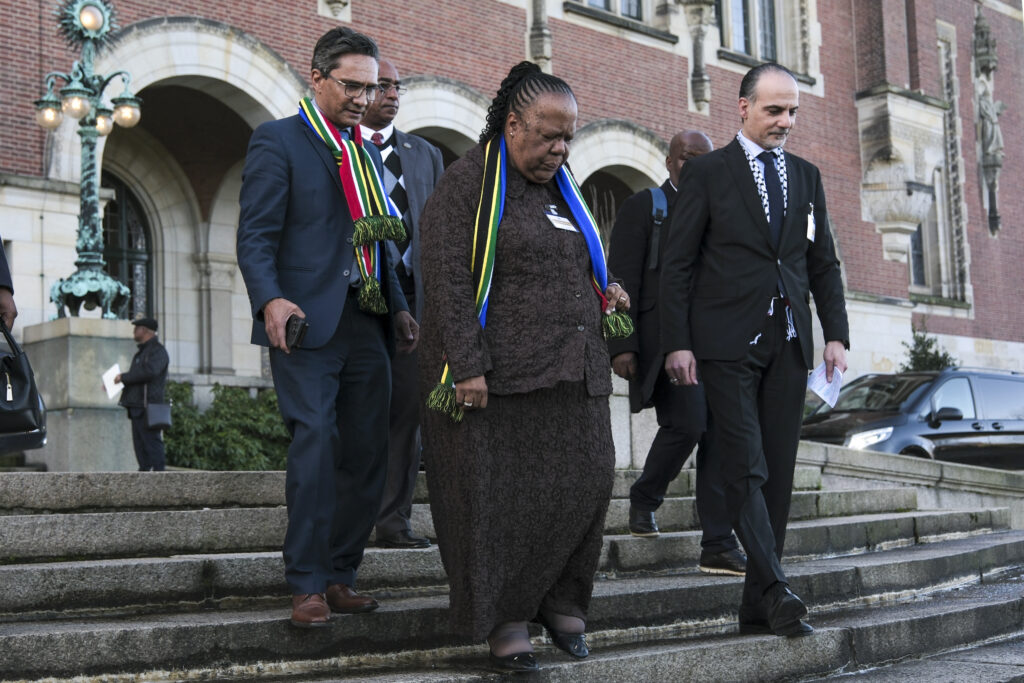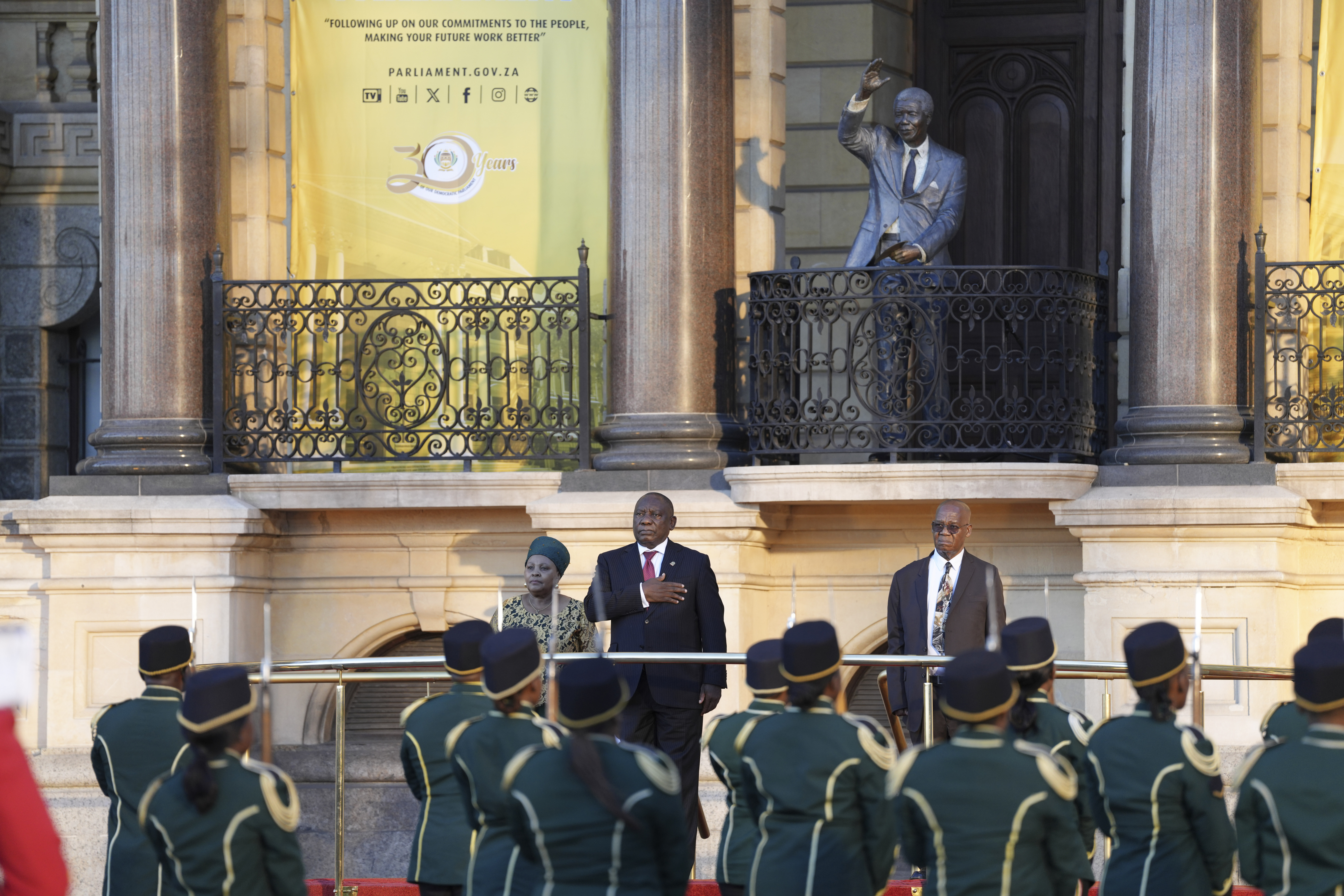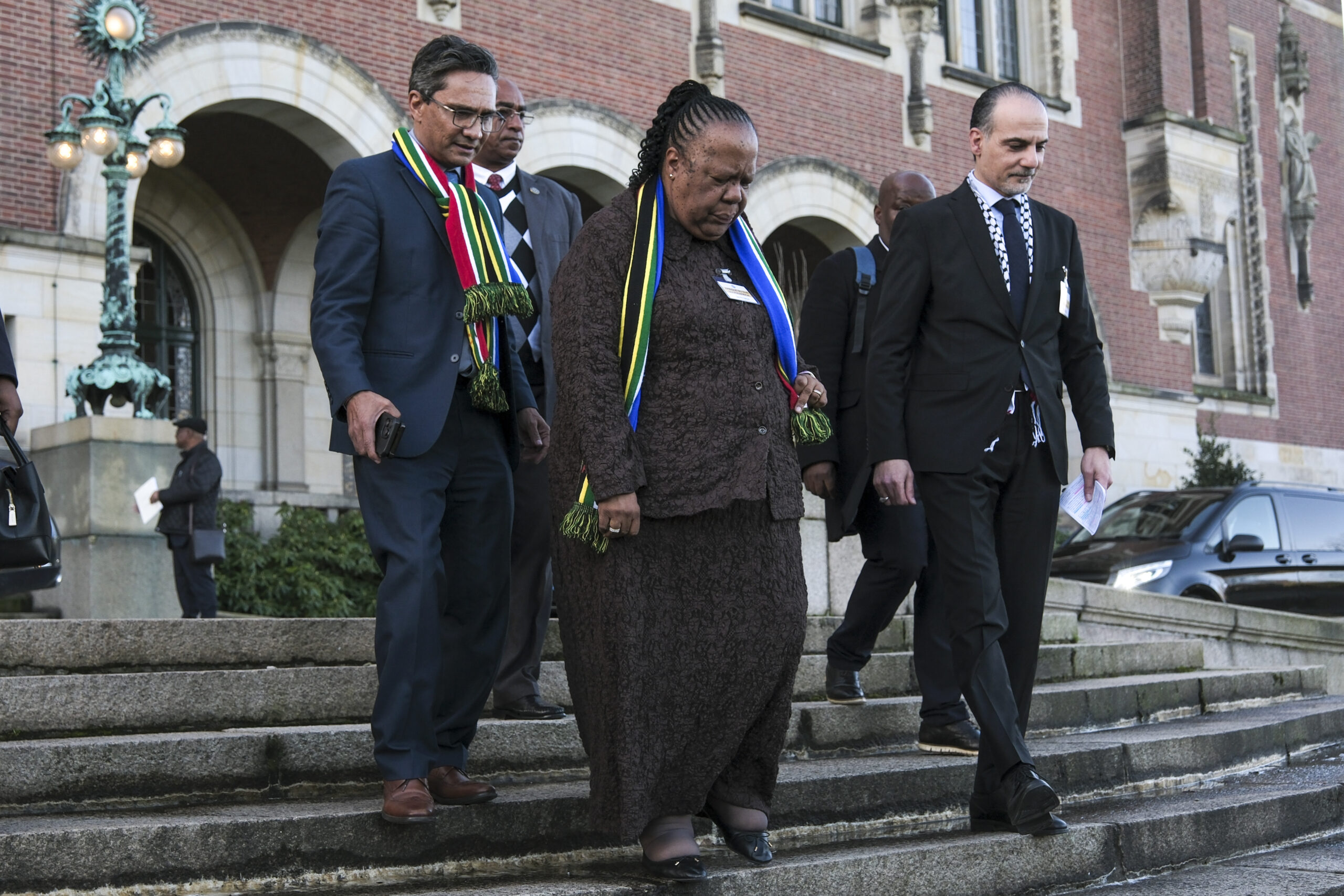LUSAKA, Zambia — For three decades, South Africa has felt the freedom of independence after the fall of apartheid, the legalized system of racism and segregation that dominated that country and neighboring Namibia.
It is that history that some in that part of the world are drawing on in their support of South Africa’s unprecedented case against Israel in the International Court of Justice (ICJ) at The Hague in the Netherlands. South Africa is challenging Israel’s treatment of Palestinians in Gaza, accusing Israel of genocide. The move is related to the attack on Israel by the Hamas terrorist organization on Oct. 7, which killed more than 1,100 Israeli civilians, and Israel’s subsequent assaults on Palestinians in Gaza, which have left almost 30,000 Palestinians dead to date.
“We as South Africans sense, see, hear and feel to our core the inhumane discriminatory policies and practices of the Israeli regime as an even more extreme form of the apartheid that was institutionalized against Black people in my country,” Vusimuzi Madonsela, South Africa’s ambassador to the Netherlands, told the ICJ last month.

Apartheid was a system in which white South Africans, before the creation of the independent state of South Africa in 1994, created a ruling class, separating Black people from white people, treating indigenous Africans as the inferior race, and deliberately ensuring that anything pertaining to Black Africans’ political and social lives was diminished.
“Some have told us that we should mind our own business and not get involved in the affairs of other countries. … Others have said it is not our place. And yet it is very much our place as a people who know too well the pain of dispossession, discrimination, and state-sponsored violence.”
South African President Cyril Ramaphosa
South Africa filed an application on Dec. 29 to start proceedings against Israel, asking the ICJ to “protect against further severe and irreparable harm to the rights of the Palestinian people under the Genocide Convention” and to ensure that Israel complies with its obligations as a party to the United Nations Convention against Genocide. In January, the ICJ directed Israel to prevent “direct and public incitement to commit genocide” and to make sure Palestinians have access to basic services. Global organizations, however, have noted that Israel’s treatment of Palestinians continues.
“The Palestinian people should experience self-determination as an inalienable right,” urged the South African team.
The decades-long territorial dispute has resulted in Palestinians being relegated to relatively small geographical areas under harsh living conditions. Black people in South Africa and in neighboring Namibia experienced similar conditions.
Namibia draws from old wounds in supporting genocide case against Israel
Namibia, once ruled by South Africa, experienced apartheid as well as colonization by Germany.
On Jan. 13, the office of late Namibian President Hage Geingob expressed strong support for South Africa’s legal action. Geingob, despite battling cancer that would take his life less than a month later on Feb. 4, called on other countries to follow suit.
In the statement, Geingob’s office singled out Germany in particular, calling on the European country to reconsider its public rejection of South Africa’s charges against Israel. Germany has called South Africa’s move baseless.
“On Namibian soil, Germany committed the first genocide of the 20th century when tens of thousands of indigenous innocent Namibians died in the most inhumane and brutal conditions,” read a statement released by Geingob’s office.
“The German government is yet to fully atone for the genocide it committed on Namibian soil,” the statement continued, referring to the fact that from 1904 to 1908, thousands of indigenous Namibians died in brutal conditions instituted by colonial German occupiers.
“Therefore, in light of Germany’s inability to draw lessons from its horrific history, President Hage Geingob expresses deep concern with the shocking decision communicated by the government of the Republic of Germany … in which it rejected moral indictment brought forward by South Africa before the International Court of Justice that Israel is committing genocide against Palestinians in Gaza.”
South Africa remembers painful days of apartheid
In a live televised address on Jan. 27, South African President Cyril Ramaphosa described what the situation looked like to South Africans:
“Some have told us that we should mind our own business and not get involved in the affairs of other countries. … Others have said it is not our place. And yet it is very much our place as a people who know too well the pain of dispossession, discrimination, and state-sponsored violence,” Ramaphosa said.

Not everyone in southern Africa is of the same mind, however, and faith has helped guide some perspectives.
Non-governmental organizations in South Africa have stood stoutly behind the Palestinian cause but this has been upset by a new pro-Israeli front of Christian NGOs calling for increased support for the Israeli position in view of the fact that Hamas, a terrorist organization, is still governing Palestine. These groups and some residents of the region of southern Africa are balancing their views of Israel’s stance with their religion.
Time2Rise, an organization aimed at infusing the Bible into South Africa’s governance, has called on its members in South Africa to pray for both the South African and Israeli governments. Time2Rise believes Israel has taken the correct course of action, the Jerusalem Post reports.
Israel was often humbled every time it lost favor with God, even in Biblical times, Bishop Peter Vyemba, a Zambian Pentecostal preacher, told Black News & Views.
“I feel for the Palestinians, but I still believe Hamas has put them in an awkward position,” Vyemba said.
It is important to put the lives of the women and children first, a shopkeeper of Tswana ethnic background in Botswana’s capital city, Gaborone, said in a phone interview.
“What have they done to deserve suffering for Hamas?” asked the shopkeeper, who declined to give his name.
The one common denominator on most sides seems to be the desire for peace.
Advocates from various local and regional NGOs organized people from all walks of life and marched to the South African Houses of Parliament in Cape Town on Feb. 17 to express solidarity with South Africa to make an urgent application with U.N. authorities over the threat to Rafah, a region straddling southern Gaza and Egypt. More than 1 million Palestinians have been coerced or forced into Rafah with promises of safety that have not happened.
But most profound was the statement made by U.S. Air Force member Aaron Bushnell, who set himself ablaze outside of the Israeli Embassy in Washington, D.C., on Feb. 25, dying from his injuries.
“It can not be said louder than that,” Ngande Mwanajiti, a Zambian human rights lawyer, told Black News & Views.
Institutional voices are pressing both sides to deescalate the violence.
In offering Zambia’s advisory opinion on Feb. 26 to the ICJ, Solicitor General Marshal Muchende said both Israel and Palestine had constantly and consistently declined to heed agreed negotiation procedures, creating havoc within the region.
“We recognize the inalienable right of the Palestinian people to self-determination. … We also recognize the legitimate security needs of the Israeli people, but both Palestine and Israel need a negotiated solution that culminates into the two-state solution,” Muchende said, citing the Oslo Accords, peace agreements between Israel and the Palestine Liberation Organization signed in 1993 and 1995.
RELATED: How Black Americans are caught up in the Israeli-Palestinian conflict
In a press statement released on Oct. 10, three days after the Hamas massacre, Angola President Joao Manuel Lourenco, on behalf of the Southern African Development Community (SADC), expressed concern over the loss of hundreds of innocent lives on both sides and the loss of properties.
“The damaging effects of this conflict will undoubtedly increase the number of internally displaced persons, especially the vulnerable groups of women, children and the elderly,” the statement read. “SADC calls upon the international community to engage the parties in resorting to negotiation towards a peaceful resolution of the conflict in line with the previously adopted U.N. resolutions recognizing the existence of the two states.”








